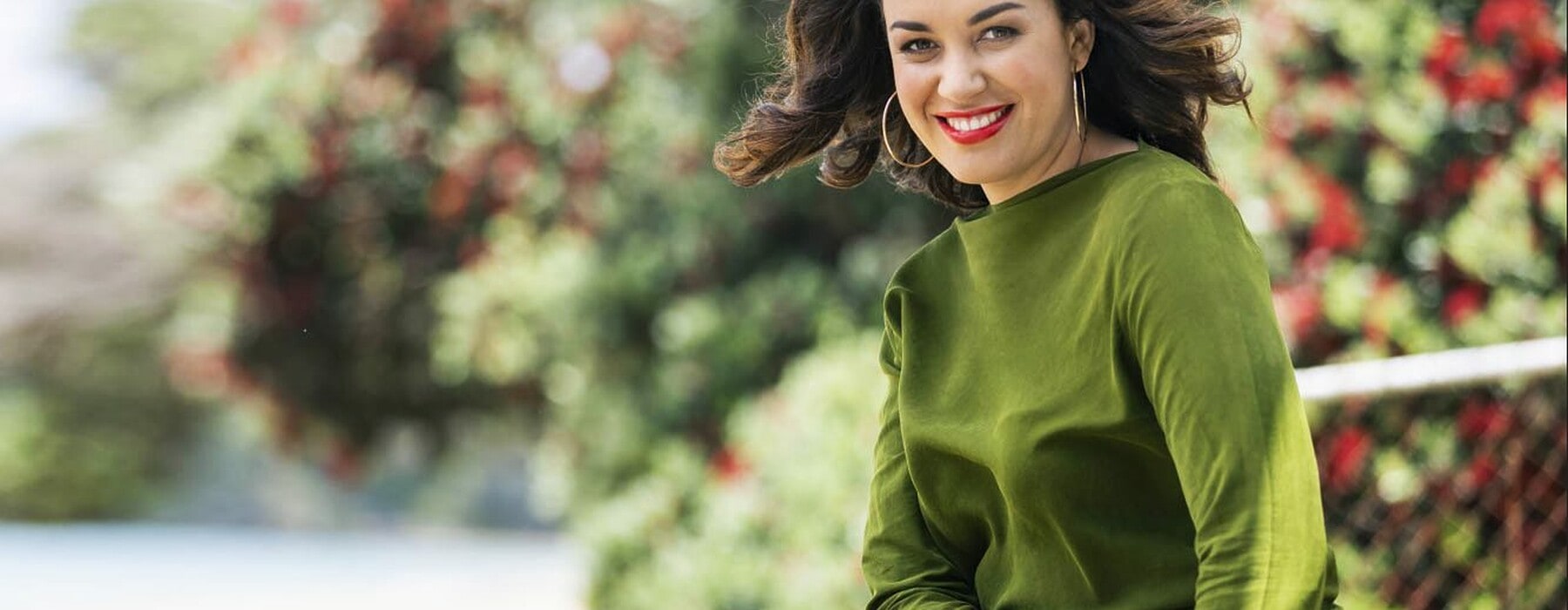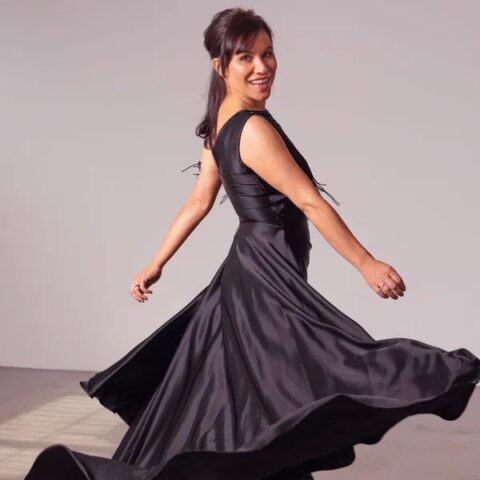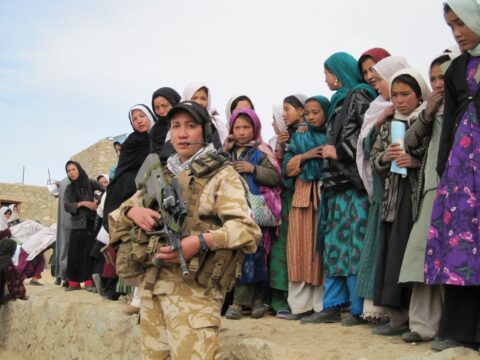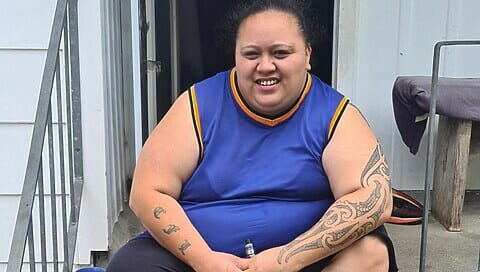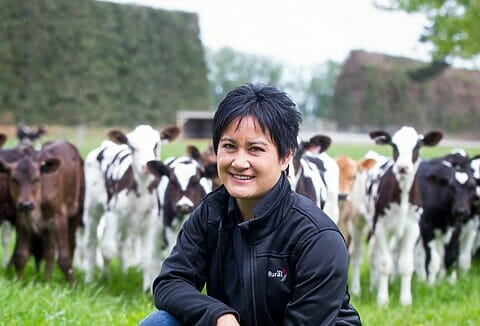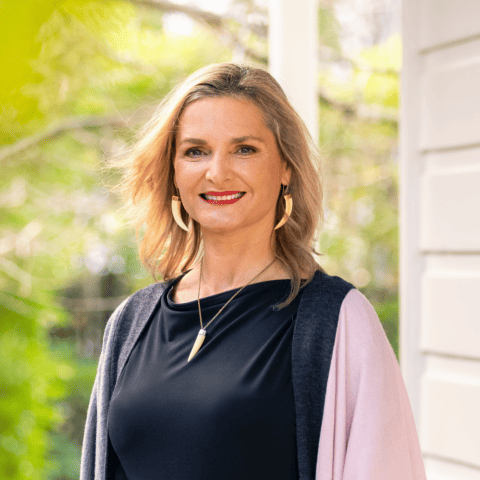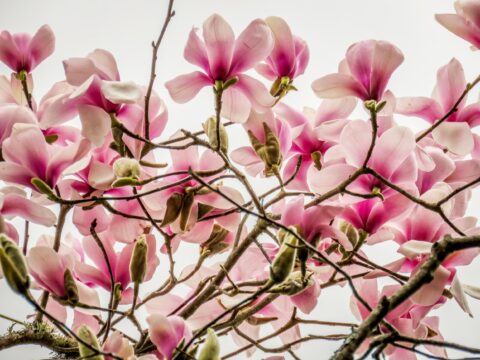Kanoa Lloyd talks to Siena Yates about her unexpected rise in TV, reconnecting with her roots and how she’s hitting refresh for the year ahead.
At the start of a new year, many of us are making sweeping resolutions and ambitious commitments to better our lives. But Kanoa Lloyd isn’t interested in bold promises or even mapping out the next few weeks or months. In fact, the broadcaster has never been big on making plans, because if there’s one thing she’s learned, it’s that beauty comes from the unexpected – if you let it.
“You know, just holding steady is a massive accomplishment,” she says, as she reflects on 2020, the year none of us will ever forget. “So I don’t know, I guess my plan is just to hold on and be grateful for what I’ve got. I think when you come from where I come from, which is not having much and just kind of scraping by, when you’ve got it, you bloody well better look around and appreciate it.”
It’s been a big year for the co-presenter of The Project, who’s worked through two lockdowns, gone months without seeing her whānau and fronted some of the nation’s biggest stories. She’s now enjoying a well-earned break, taking her mum Diane, who lives in Dunedin, to Mangawhai, Northland, with her sister Ruby.
“We booked a little place up there for a few nights. It’s like a proper dinky little bach,” she says, adding that she can’t wait to take her mum swimming in warmer waters than what she’s used to down south. “And then we’ll go and see my papa in the Coromandel and hang out with him and do some fishing.”
Kanoa has been on something of a journey of self-discovery during the past few years, since her well-publicised return to her roots. A visit to her whenua and turangawaewae in Tokomaru Bay was broadcast in 2019, the result of an airline publicity trip to Chicago that coincidentally led her to a marae in a museum there, which eventually guided her home.
Ever since then, Kanoa’s strengthened her bond with te ao Māori and her confidence in her place within it. Now, having celebrated her 34th birthday just before Christmas, she’s ready to see where that path takes her next.
“I can say pretty confidently that this journey into te ao Māori will carry on, but I don’t know what form that will take. I’m not putting any big pressure on myself to be a fluent speaker by the end of 2021 or anything, you know? Things just unfold for me a lot of the time, like, from where I was when I went back to Tokomaru Bay a couple of years ago to where I am now, that’s all kind of happened organically, and when something’s growing that well, I don’t want to mess with it too much,” she explains.
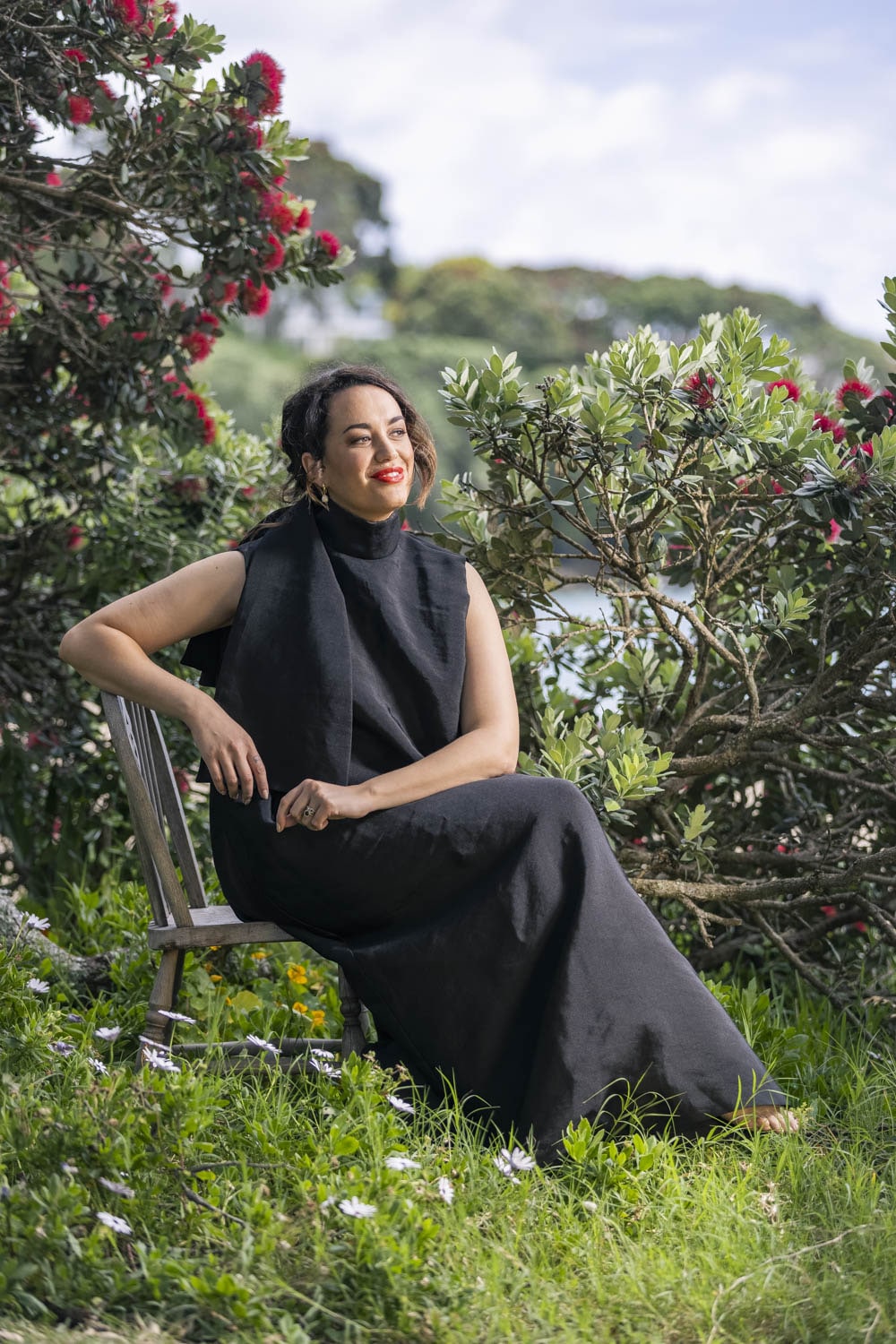
Kanoa was born in Gisborne but raised in Dunedin and split her time between her parents Diane and Tautuhi Pakaua, who separated when she was about five years old. She was a self-confessed nerd throughout school, which “was like Disneyland to me” and where she was “so desperate for teachers’ approval”. But she was the kind of kid who very much still did things her own way.
“When we had babysitters when I was three or four, I would make the babysitters sit at the typewriter and I’d dictate stories to them,” she recalls with glee. “And my dad was really into fantasy novels and had these big fat books and I would turn the pages and be like, ‘Oh no! They’ve run out of words at the end of this page. Let me just fix that,’ and write in ballpoint pen in these library books to fix it for my dad.”
Because she’s always done things her own way, she’s also never been scared to change directions, a mindset which has led her to where she is today. It started when she left school to study English at Otago University with ambitions to become an author. When it became evident that wasn’t working out, she left.
“I weirdly didn’t like it,” she remembers. “I was like, ‘I feel really uncomfortable here, I’m really hating this, I think there’s something mentally wrong with me. I should be excelling here.’”
She found out a year later that she’d been suffering from glandular fever and was actually just – quite literally – sick and tired. Changing direction, she settled on Otago Polytechnic. She decided that, rather than just having a degree at the end of her studies, she wanted a job. So she trained as a massage therapist, and after two and a half years, she graduated.
“Then I promptly got a job in television in Auckland and moved up here and never worked [as a massage therapist],” she laughs. Kanoa has been involved with kids’ TV show Squirt during high school, doing movie reviews. As well as aspiring to be an author, she’d had hopes of going to Toi Whakaari drama school and becoming an actor, specifically “going to the original Globe to be a Shakespeare actor”.
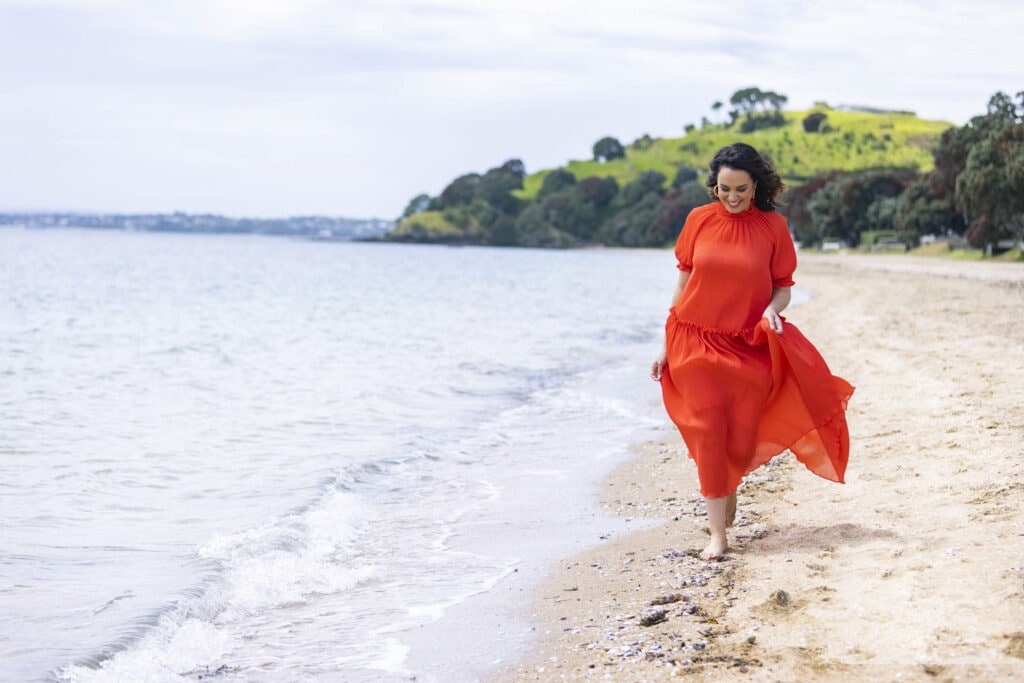
So when auditions cropped up for a gig presenting a brandnew kids’ show called Sticky TV, she went for it. “TV was appealing to me because I was like, ‘Oh, you get to do fun stuff and there’s money.’” For a kid working shifts at her local Mitre 10 at the time, it was a no-brainer. She presented Sticky TV for five years, before moving to the breakfast show on Mai FM, which proved a less-enjoyable experience. Presenting with two male co-hosts and a team entirely made up of men, Kanoa “worked out pretty quickly that radio wasn’t really for me”.
While she’s the first to acknowledge things are changing and improving now, she was there at a time when that wasn’t the case. “Being the girl on the radio show, there was a lot of pressure to be like, ‘Let’s do this whacky challenge where you take your clothes off,’ or ‘Let’s spin the wheel and see who has to have a shower with this rugby player.’
“There were so many times I looked around the room and I was like, ‘I’m literally the only woman in here. All my colleagues and my bosses are dudes who think this is funny and think I’m a drag because I’m saying no.’”
There were so many times I looked around the room and I was like, ‘I’m literally the only woman in here’
So when the opportunity arose to move back into TV, she took it. By that point, Kanoa had met her now-husband Mikee Carpinter (who also started out in kids’ TV, as Props Boy on What Now) at a mutual friend’s birthday party. It was him who encouraged her towards her next role: weather presenting on Three. It was a thrill to work alongside her TV idols Samantha Hayes and Hilary Barry.
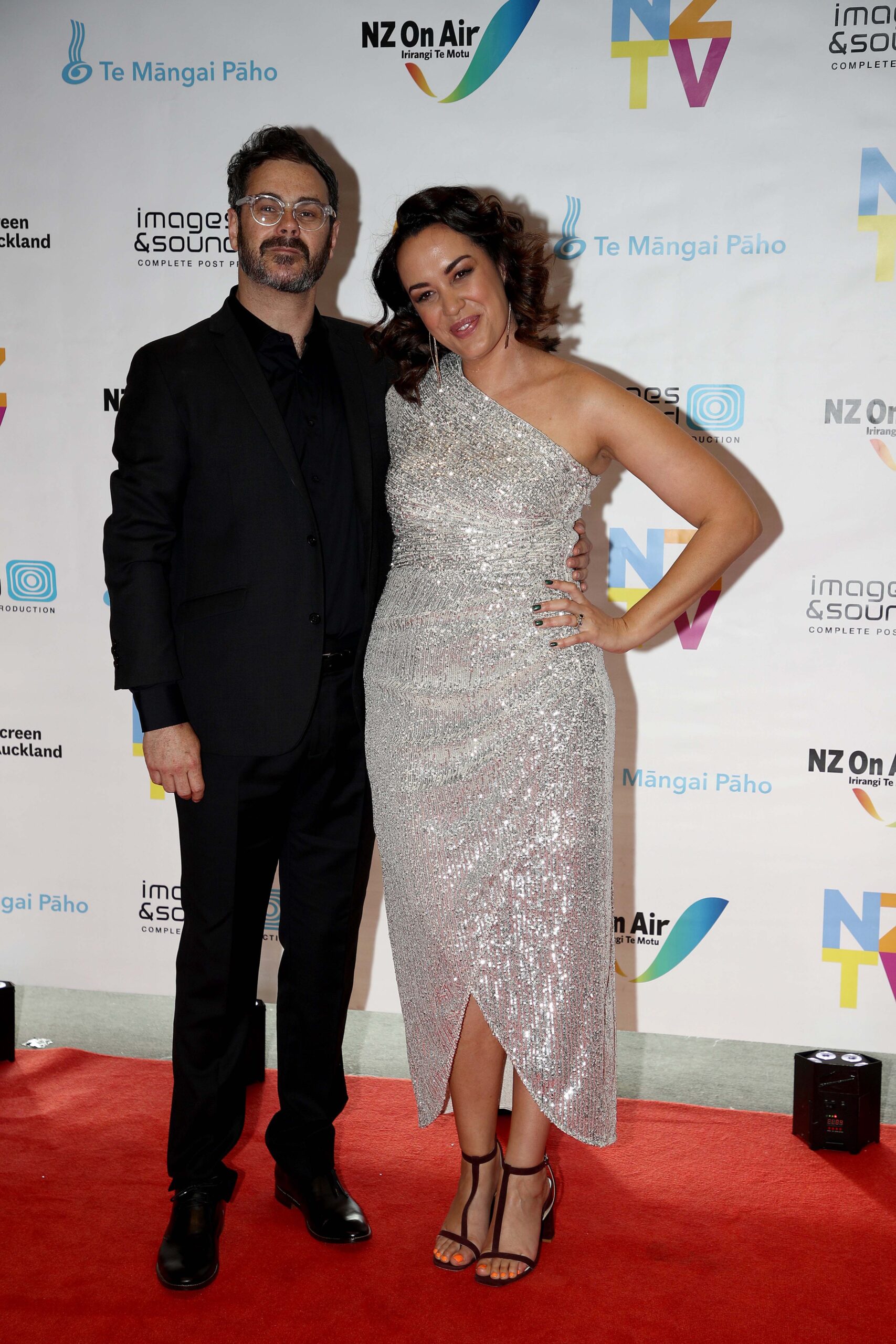
“I was like, ‘I don’t know anything about weather, but if it means I get to work at the same address as these people, I’ll do it.’” So again, she rode the wave and threw herself in the deep end despite knowing nothing about the weather or newsrooms. And again, she thrived. Her first taste of news presenting came after she was called to fill in on the late-night news.
“I honestly thought I was going to have a heart attack. I was like, ‘I can’t sit next to Samantha Hayes! That’s Samantha Hayes!’ But, you know,” she shrugs, “I didn’t die.” From there, her next gig was as a presenter on The Project, a role she’s been in since the show first hit our screens in 2017.
“I can’t even imagine the discussions that must have gone on, like, ‘Oh yeah, we’re gonna get this weather presenter who used to be on kids’ TV to do the 7pm show,’” Kanoa says, incredulously. If you ask her, she’ll tell you her career has been a series of convenient flukes, but of course, we’re always the first to play down our own achievements – especially as women. The only thing that’s hard to believe is how easily Kanoa has flowed through all these changes in direction, particularly given she’s spoken openly about her anxiety.
But when it comes to anxiety, she says, “Everybody’s got a different flavour, right?” Considering her struggles, live TV might sound like a nightmare, but for Kanoa, there’s something comforting about being on air. “It’s something you’re really in control of. I’ve got help around me and I’ve got everything I need, just [in front of me]. But if anything – even minor things – changes, I basically just defer to Jesse [Mulligan, her co-host]. I can’t cope.”
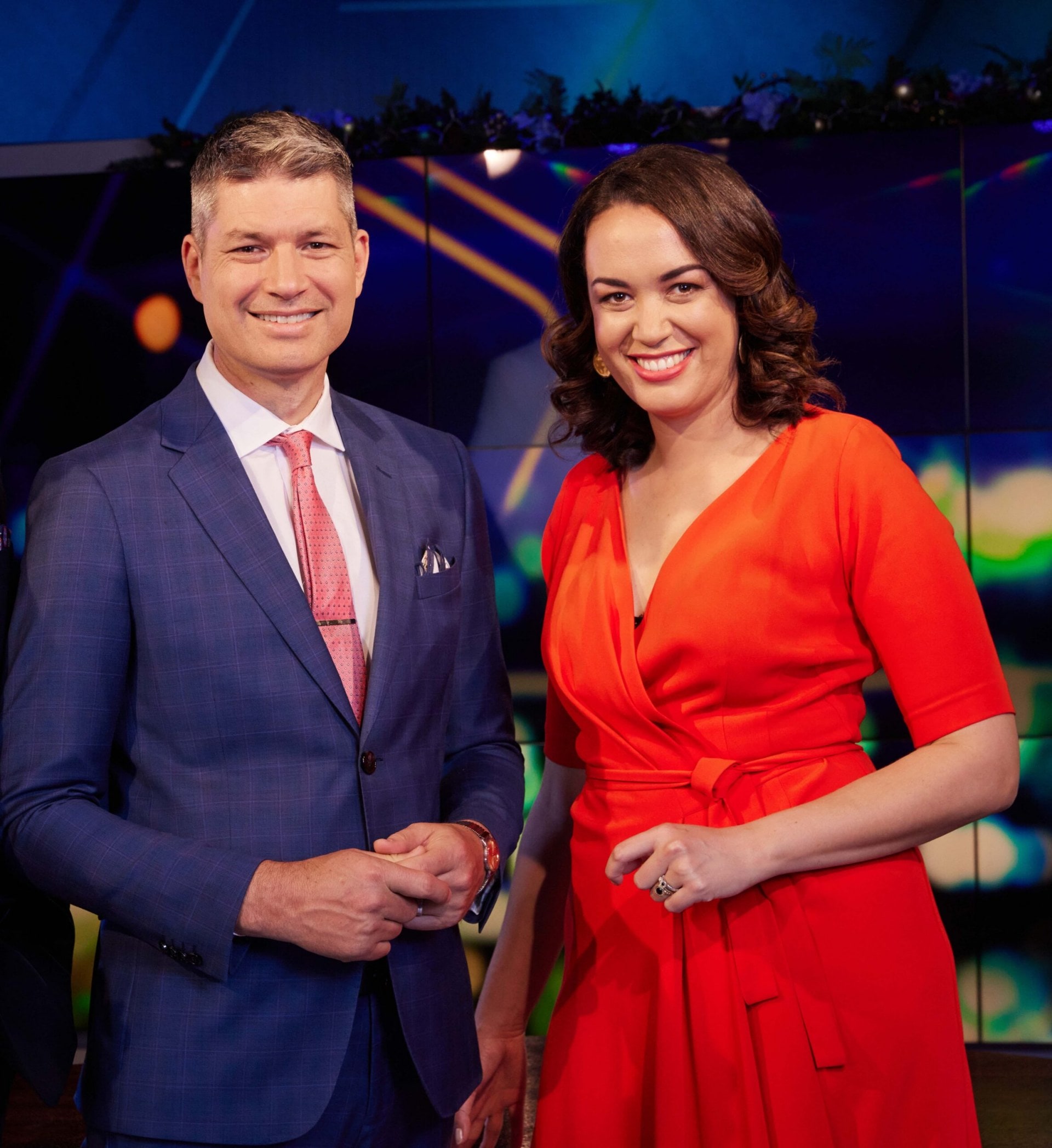
Social gatherings are more difficult. “It’s a less controlled situation, which I find hard,” she tells. Much of what drove Kanoa’s nerves and anxiety was based in the preconceived notions of what she thought she had to be, she says. She copped flack from viewers of The Project for being too happy and smiley during hard-hitting stories, which she admits happened a lot during her first year.
“I was so afraid to show that I was emotional, I would sort of go the other way and smile, and people got so mad at me. I was literally just trying not to lose my s*** and burst into tears. But then I started to realise what it looks like, instead of just thinking about what it felt like, and it was like, ‘I better get over that because that’s pretty messed up.’ “I was just thinking that all journalists are really tough and stoic and don’t show any emotions and don’t vote and probably don’t go to the toilet, you know? Thinking that I had to pretend to be some sort of superhero and then realising I’m not any of those people that I look up to and also I don’t need to do those things.”
One of the ways Kanoa found solid ground on The Project, particularly in the last couple of years, was through her advocacy for te iwi Māori. “To be clear, there are people that have been advocating for our people and working in the news space and pushing s*** uphill with a stick for decades, it’s just that their butt doesn’t happen to be sitting on the same seat that mine is,” she says. “But yeah, I have definitely taken my whakapapa and my responsibility as a Māori broadcaster a bit more seriously in the last couple of years. I’ve kind of grown up a little bit and I went home back to my whenua in Tairāwhiti, and standing under my maunga and having a swim in my awa, it did really flick a switch for me.”
Standing under my maunga and having a swim in my awa, it did really flick a switch for me
One thing that previously held her back was the idea that being Māori was “a one-size-fits-all” approach. “Like you had to be at every tangi, you had to know every cousin, you had to have some place to stay when you went back to where you’re from. And I don’t, I’m not like that, I don’t have those things. And I think maybe for a while, I probably felt a bit embarrassed about that so I just didn’t even let myself think about that, didn’t let myself think about my shame.
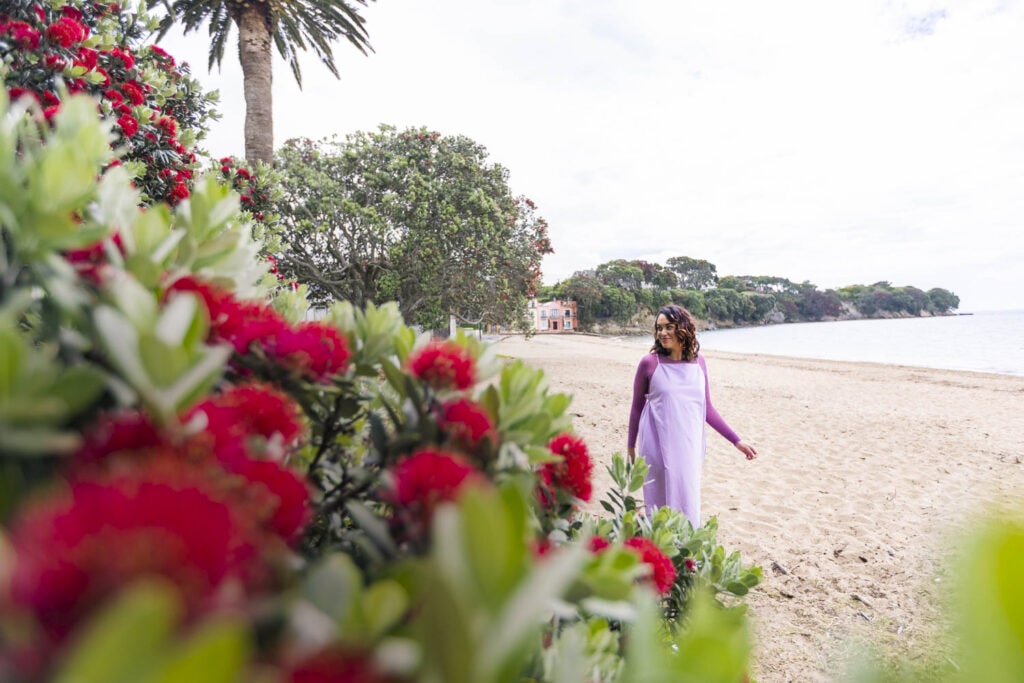
“But I think I just started to feel like, ‘Hey, this is my right. I can be any sort of Māori I want to be. I can be myself and own my Māoritanga and identify things that don’t look right to me when it comes to our own people, and it doesn’t have to be the same as what everybody else is doing. I can only do what I can do, but doing something is better than nothing.’”
Growing up, Kanoa very much knew she was Māori and was connected to her whānau and her people. Her father worked in Māori mental health services, so she went along to many hui. She went to kōhanga reo and studied te reo Māori in high school but, she says, before she made that connection back to her whenua, it all “sort of felt a bit… pretend. Like a very shallow version.”
Now that she’s filled that gap, Kanoa’s been able to not only speak out more and move with more assurance through the world, she’s also been able to find community with other wāhine Māori, which has been vital. The TV and media industry and particularly being Māori in that world “can be really weird and lonely” she says, so linking up with “cool, kind of mentor-y people that you can bounce stuff off ” has helped.
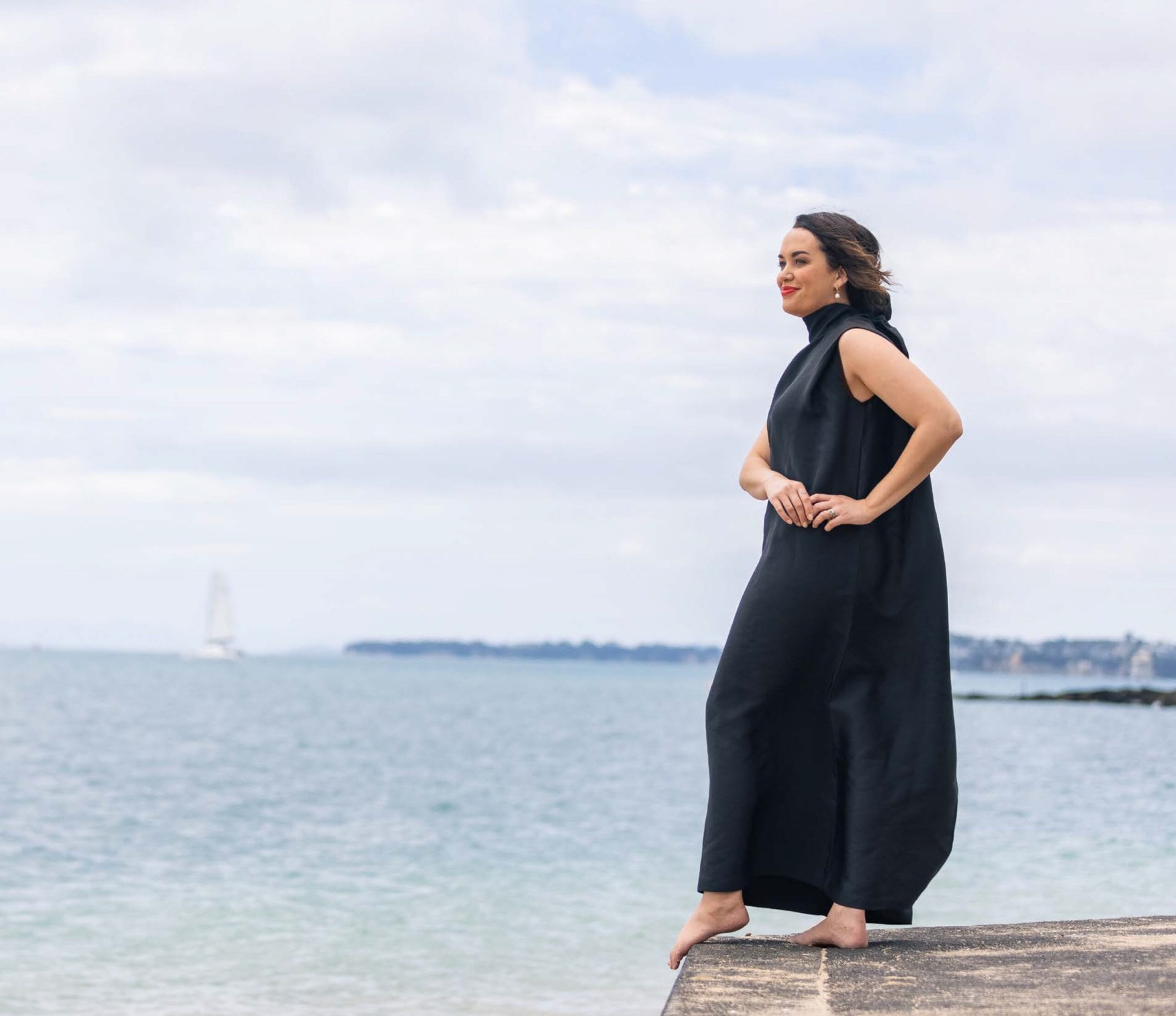
Fellow news presenter Miriama Kamo reached out to Kanoa and connected her with other Māori women who all get together for dinner and a glass of wine every now and again. They also have a group message thread where they post about each other’s achievements.
“It’s so vital,” Kanoa says. “How the hell are we supposed to get ahead and succeed and flourish and thrive without each other? It’s not possible.” Family remains at the centre of Kanoa’s world.
How the hell are we supposed to get ahead and succeed and flourish and thrive without each other? It’s not possible.
They keep her grounded, treat her the same way they always did and don’t talk about her work or her public image at all. Instead, they discuss everyday things like pottery, gardening, fishing and what the dogs are up to. And at the end of the day when Kanoa goes home to husband Mikee, she’s still “really pumped to see him” – even after 10 years together and four years of marriage.
She’s incredibly proud of the success of The Project, and these days is less concerned about ratings and more interested in what they can do next and how they can grow the show. “It’s almost hard to conceive of a year where we just feel really comfortable and just are not worried about what’s around the corner. The idea of being able to dream really big and do whatever we want… I actually don’t know if I can get my brain around that just yet,” she says.
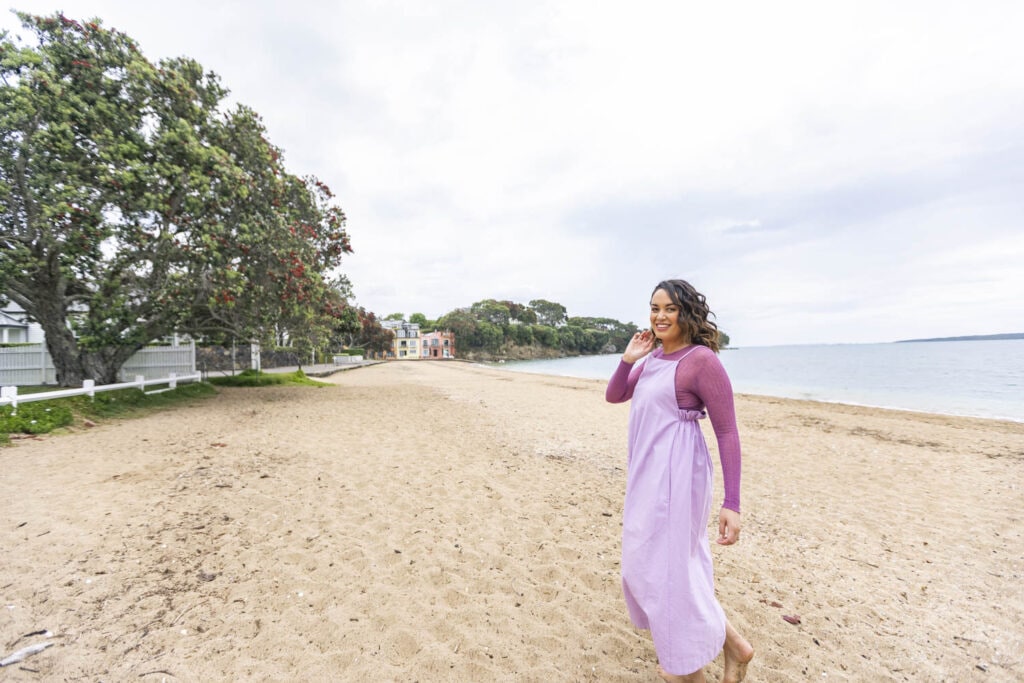
As she heads off on holiday, she’s excited about the year ahead, but always grateful for what’s right in front of her. “I need to have a little break, a little holiday, a little wash in the water to get this disgusting year off me and then we can start really thinking about what we can really do.
“But I do sort of feel like someone who’s just got everything I want and need. I’ve got a cool job. I love my husband. I love my friends. I love where I live. I love my dog and my cat and my family.”

